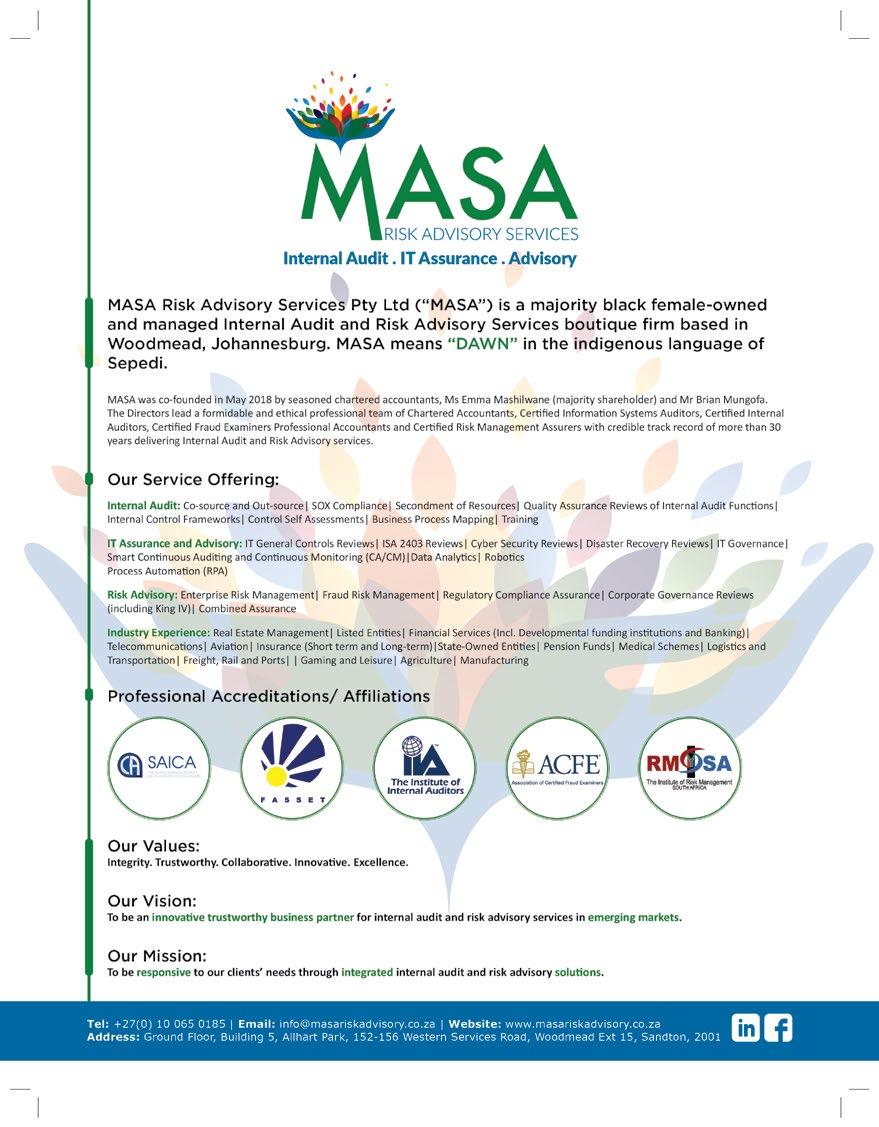
3 minute read
SMALL BUSINESS
Supplier development Supplier development
drive can get SME sector and economy back on its feet
By Dylan Baxter
Big businesses can play a key role in rejuvenating the South African small business sector and in helping the entire economy to recover from the impact of the COVID-19 pandemic by using their enterprise and supplier development (ESD) spends smartly in the coming months.
Giving small businesses the opportunity to become part of larger companies’ supply chains will not only help the sector to recover from the economic devastation caused by COVID-19 restrictions but will also create a platform for sustained job creation and growth and contribute to the flagging GDP. At the same time, it will help big businesses meet their B-BBEE targets during an economic downturn.
According to National Treasury figures, there are around one million formally registered SMEs in South Africa, which provide about 60% of the country’s jobs. Surveys indicate that 60% of SMEs are either considering retrenching employees or have done so already. This poses a significant threat to the economy with millions of jobs at risk.
Every sector of the economy has been impacted by the pandemic. But, right now, there’s a real opportunity for businesses to take a long-term view, both in helping the economy get back on its feet and in achieving their own
ESD objectives and supply chain initiatives. As we emerge from the worst of the restrictions, businesses will need to start delivering on projects and starting up their operations. Using small suppliers to help them do this can play a major role in rebuilding the economy.
Most businesses have ESD and inclusive procurement programmes, but we need to step this up if we’re going to get close to creating the job opportunities and economic growth we so desperately need.
A good starting point for big corporations is to look at which goods and services can be outsourced immediately to SMMEs with little risk to the business, for example, cleaning, courier, maintenance, security and even software development. This should be followed by identifying candidate businesses that have the potential to be included in your supply chain and grooming these businesses for supply chain partnerships.
For small businesses, the key right now is determining the new what (product or service), the new how (processes) and the new where (distribution channels) to remain relevant and have the ability to respond to opportunities needed by other businesses.
ESD has always been about taking a long-term view, and building capacity in suppliers over a fiveto seven-year period to generate momentum. In this way, you create meaningful and sustainable businesses over the long term. The COVID-19 crisis is the time for businesses to engage SMEs to not only support them, but also to ensure that they are well positioned to answer your supply chain needs quickly. Now, more than ever, ESD is not just about compliance. It’s a chance to add real value to your supply chain and make a difference. Dylan Baxter is the head of sales at Raizcorp. His extensive sales career spans over two decades and he has also experienced his own entrepreneurial journey, during which he started and ran his own successful retail business.

About Raizcorp
Celebrating its 20th year in 2020, Raizcorp is, according to The Economist, the only genuine incubator in Africa. It provides full service enterprise and supplier development programmes that guide entrepreneurs to profitability. Raizcorp has created ‘Prosperation™’ – its own unique, worldrenowned model of business incubation. Founded in 2000, Raizcorp has become Africa’s premier business incubator model.
Raizcorp
W www.raizcorp.com











